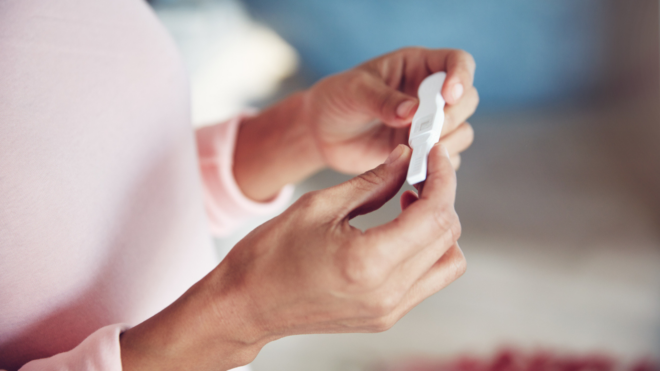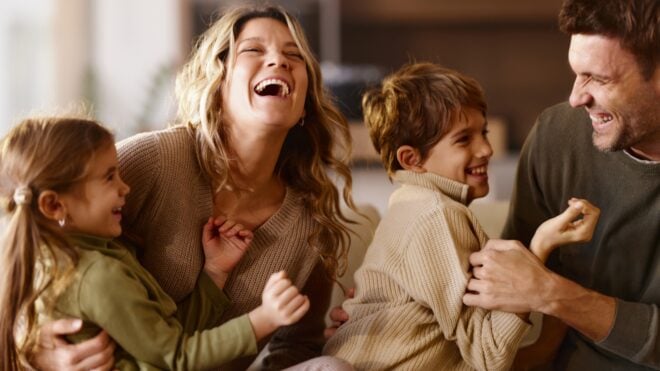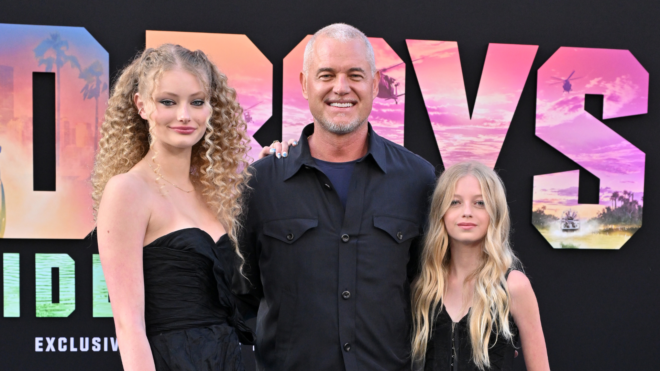I can't tell you exactly when my obsession with my weight began. I know my eating disorder came first, a nearly decades-long habit of binging and purging that started more out of a desperation for control than any underlying belief that my weight was an issue. That belief only came later, perhaps as I realized just how delicious the control I'd been seeking was.
But somewhere along the line, I began valuing myself based on the numbers that appeared to me on a scale. It got to the point that every morning, before I ever did anything else, I would stand on that scale, naked and prepared to be judged.
It had to be morning, and it had be first thing—before I drank a sip of water or jumped into the shower—because that was when I convinced myself the number was most accurate, before the pounds of another day could be added on.
In my early 20s, I sought out help for my eating disorder
And I made huge strides in the years that followed. The strides were never all at once, of course, but in fits and bursts—small epiphanies where I would learn to love my body a little more, to embrace it, to celebrate it for all the miracles it performed.
Even as it failed to provide me the one thing I wanted most: a child growing beneath my heart.
But still, despite infertility (and the years of body loathing that piled back on top of me), I became a mother anyway. I adopted a little girl with round cheeks and an infectious smile, and I learned to love myself even more through her eyes.
I recognized my own value for the first time, mostly as an extension of honoring hers.
My daughter has changed so much about the way I live my life. She has changed the way I date, the way I speak about myself and the type of treatment I now demand from the people around me. I realized early on that she was always watching, always taking in my interactions with the world and filing those lessons away for herself, so I wanted to set a better example for her than I had ever been given.
I wanted her to always know her worth
And yet, the scale remained. Even as I developed what I believed to be a fairly healthy body image, and even as I proudly proclaimed my freedom from body hatred, I continued to step on that scale every morning, still always before I had done or consumed anything.
Because that was when the number reflected back to me provided the most accurate depiction of my worth.
I didn't think anything of it. Even as so much else changed about my life, I didn't consider the weight I was giving to, well, my weight.
But I was. I would adjust what I ate throughout the day based on that number. I would change how I worked out and how I functioned. I would alter the way I viewed myself, determined to do whatever necessary to remain within a certain "acceptable" weight range.
I never spoke about weight or calories in front of my daughter. I refused to allow her to hear me talking about dieting or dropping a "pesky" few pounds. I was determined to never allow her to see me obsess over what I never wanted her to care about.
But then, one morning, it happened
Just as I was stepping off the scale, I turned to see my little girl standing behind me. "My turn," she said proudly, a smile spread across her face. And as I stood there in shock, she stepped up onto the scale herself and stared down at those numbers intently.
My breath caught. She was still a few weeks shy of 3, too young to know what she was looking at, or what those numbers meant. But she had been watching me, even when I had been so sure she wasn't, and she had observed this ritual of mine — a ritual she now wanted to take part in herself.
In that moment, it finally hit me how unhealthy this was. I finally saw the scale as the remnant of my disordered past, a desire to still maintain control.
In the months prior, I had inexplicably put on about 10 pounds. Nothing about my life or habits had changed, and every medical test (because yes, I had been harassing my doctor over this spike) showed that I was fine. "You're just getting older," my doctor had said, "this is normal." To which I had nearly cried.
My obsession had only gotten more intense after that. I was determined to get back down to "acceptable." Not "perfect," or even "good," (because even through all my self-proclaimed healing, I had never believed my body to be either)—but "acceptable."
And I want her to know that no set of numbers could ever define her value.
I am determined to be better for her.
So that she can be better than me.
And my daughter had been watching
I felt sick, realizing that even if she didn't understand what she was doing (what I was doing) yet; she would all too soon. She was learning from me. And I had to be a better example.
So in that moment, I threw on a robe and I picked up that scale. I kissed my girl on her head and whispered, "You are perfect, exactly as you are," and with tears in my eyes, I marched the scale down to our trash can outside. And then I walked back into the house and made us both waffles.
It's been almost three months now
I haven't weighed myself since. When I went to the doctor recently, I intentionally didn't look at the number when it was time to be weighed. I didn't trust myself with that number. Not yet, anyway. I was afraid that if I had gained more, it might trigger the obsession again, convincing me that only a scale could keep my weight in line when of course, realistically, nothing could be farther from the truth.
I am far from the "healed" version of myself I would like to be. I still stare a bit too critically at my body in the mirror, and I am still guilty of running an extra mile or two not because I want to, but because I deem that to be the punishment I deserve for the piece of cake I may have indulged in the night before. I still struggle sometimes. I've always been a curvy girl, and I know now I always will be; it's a constant battle for me to embrace my body, rather than admonish myself for it.
But I'm trying. Because I don't ever want my little girl to look at herself in the same way I have long been so guilty of looking at myself. I want her to be stronger. Happier. Prouder.




